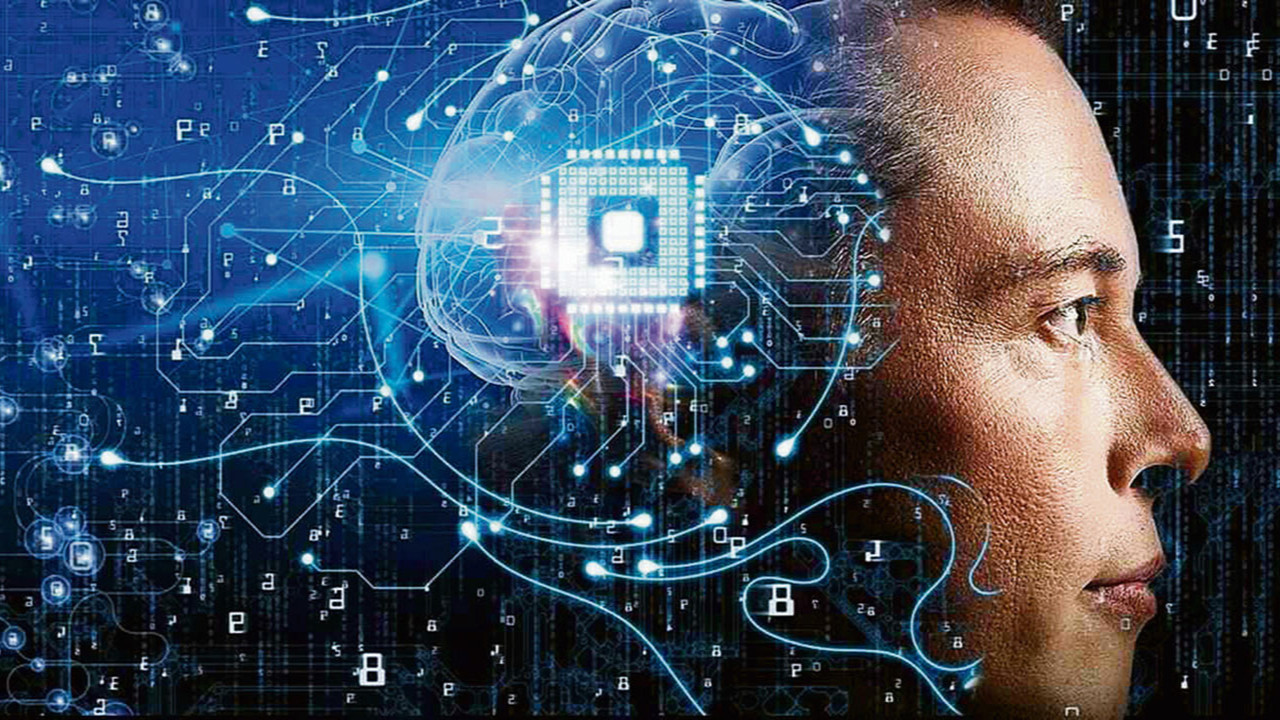Elon Musk’s Neuralink Achieves Milestone with Ninth Brain-Computer Interface Implant
In a groundbreaking development in the field of neurotechnology, Neuralink, the brain-computer interface company co-founded by Elon Musk, has successfully implanted its innovative device into a ninth participant. This achievement marks another significant step forward in Neuralink’s ambitious mission to revolutionize the interaction between the human brain and technology.
Neuralink, founded in 2016, has been at the forefront of developing cutting-edge brain-computer interfaces (BCIs) designed to bridge the gap between human cognition and advanced computing systems. The company envisions a future where these devices can assist individuals with neurological disorders, enhance cognitive abilities, and ultimately create a seamless integration between humans and artificial intelligence.
The recent procedure involved the implantation of Neuralink’s proprietary device, which is designed to establish a direct communication link between the brain and external devices. The success of this ninth implantation underscores the company’s progress in refining its technology and achieving greater precision in its surgical techniques. While details about the participant and specific outcomes of the procedure have not been disclosed, Neuralink’s track record suggests that this milestone is part of an ongoing effort to ensure safety, reliability, and effectiveness in their devices.
The Significance of Neuralink’s Technology
At its core, Neuralink’s brain-computer interface consists of a small, coin-sized device implanted into the skull, connected to ultra-thin, flexible threads that are inserted into specific regions of the brain. These threads are equipped with electrodes capable of detecting and transmitting neural signals. By interpreting these signals, the device can facilitate communication between the brain and external systems such as computers or prosthetic devices.
The potential applications of this technology are vast and transformative. For individuals with spinal cord injuries or neurodegenerative diseases such as ALS (amyotrophic lateral sclerosis), Neuralink’s device could enable them to regain control over motor functions or communicate more effectively. Additionally, the company envisions applications in treating conditions like epilepsy, Parkinson’s disease, and even mental health disorders such as depression and anxiety.
Elon Musk has frequently highlighted the broader implications of Neuralink’s work, emphasizing its potential to serve as a safeguard against the existential risks posed by artificial general intelligence (AGI). By enhancing human cognitive capabilities through direct integration with AI systems, Musk believes Neuralink could help humanity keep pace with rapidly advancing technology.

A Journey of Innovation and Challenges
The journey toward achieving this milestone has not been without challenges. Developing a device that can seamlessly interface with the human brain requires overcoming significant technical, ethical, and regulatory hurdles. Neuralink has invested heavily in research and development to ensure its devices meet rigorous safety standards while maintaining functionality.
One of the company’s most notable accomplishments is the development of a robotic surgical system designed to implant the device with unparalleled precision. This robot is capable of inserting the ultra-thin threads into the brain without causing significant damage to surrounding tissue—a critical factor in ensuring the long-term viability of the implant.
In addition to technological hurdles, Neuralink has faced scrutiny from medical professionals and ethicists who have raised questions about the potential risks associated with invasive brain surgery. To address these concerns, Neuralink has conducted extensive preclinical testing on animal models and has worked closely with regulatory agencies such as the U.S. Food and Drug Administration (FDA) to ensure compliance with safety protocols.
In May 2023, Neuralink achieved a major regulatory milestone when it received FDA approval to begin human trials. This approval marked a turning point for the company, allowing it to transition from preclinical research to testing its technology on human participants. The successful implantation in the ninth participant is part of this broader effort to evaluate the device’s safety and efficacy in real-world scenarios.
Ethical Considerations and Public Perception
As with any breakthrough technology, Neuralink’s advancements have sparked significant debate about their ethical implications. Critics have raised concerns about issues such as privacy, consent, and potential misuse of brain-computer interface technology. For instance, questions have been raised about how neural data will be stored and protected, as well as who will have access to this information.
Neuralink has sought to address these concerns by emphasizing its commitment to transparency and ethical responsibility. The company has stated that it prioritizes user privacy and aims to develop robust safeguards to prevent unauthorized access to neural data. Additionally, Neuralink has expressed its intention to work closely with regulatory bodies and independent oversight committees to ensure that its technology is used responsibly.
Public perception of Neuralink’s work has been mixed. While many view the company’s innovations as a beacon of hope for individuals with debilitating neurological conditions, others remain skeptical about the long-term implications of merging human cognition with advanced computing systems. Nevertheless, there is little doubt that Neuralink’s work has captured the imagination of both the scientific community and the general public.
The Road Ahead
As Neuralink continues to refine its technology and expand its clinical trials, the company remains focused on its ultimate goal: creating a scalable, user-friendly brain-computer interface that can be widely adopted. Achieving this vision will require overcoming numerous challenges, including reducing the cost of production, ensuring long-term biocompatibility, and addressing ethical concerns.
Looking ahead, Neuralink plans to explore additional applications of its technology beyond medical use cases. Elon Musk has hinted at possibilities such as enabling telepathic communication, enhancing memory retention, and even creating immersive virtual reality experiences powered by direct brain input. While these ideas may seem like science fiction today, Neuralink’s rapid progress suggests that they could become a reality in the not-too-distant future.
The successful implantation of Neuralink’s device into a ninth participant represents a significant milestone on this journey. It demonstrates not only the company’s technical expertise but also its commitment to pushing the boundaries of what is possible in neuroscience and technology.
Conclusion
Neuralink’s latest achievement underscores its position as a pioneer in the field of brain-computer interfaces. By successfully implanting its device into a ninth participant, the company has taken another step toward realizing its vision of transforming human-computer interaction. While challenges remain, Neuralink’s progress offers a glimpse into a future where technology and biology converge in unprecedented ways.
As the world watches Neuralink’s journey unfold, one thing is clear: the potential impact of this technology is immense. From restoring mobility to individuals with paralysis to augmenting human intelligence, Neuralink’s innovations have the power to reshape our understanding of what it means to be human in an increasingly digital age. With each milestone achieved, the company moves closer to unlocking new possibilities for humanity—possibilities that were once confined to the realm of imagination but are now within reach.
News
Ferrari fans will love Lewis Hamilton’s final radio message after ‘incredible’ Italian Grand Prix comeback
Lewis Hamilton came home to finish P6 at his maiden Italian Grand Prix in Ferrari colours. The seven-time world champion…
So Hot!!! Zoë Kravitz and Harry Styles have taken their budding romance to the next level
Zoë Kravitz introduces new boyfriend Harry Styles to rock legend dad Lenny – as trendy trio enjoy NYC lunch amid…
Tommy Fleetwood ‘overwhelmed’ by reaction to Tour Championship win with Tiger Woods and LeBron James among those to congratulate him
Tommy Fleetwood says reaction to his breakthrough PGA Tour win at the Tour Championship, with Tiger Woods and LeBron James…
Megan Moroney talks about her Riley Green shirt and confirms her current relationship status
Megan Moroney Confirms Her Relationship Status On VMAs Red Carpet Anthony Behar/Sipa USA/Alamy Live News Sounds like she’s very single….
After Taking a ‘Lie Test’ to Clear Up Online Rumors About Her Relationship with Jelly Roll, Bunnie Xo Turns the Lie Detector Into a Brick
“Swingers? Sugar Daddies? Marrying For Money?” – Bunnie Xo Takes Lie Detector Test To Address Online Rumors About Relationship With…
Megan Moroney Made Country Music History at the VMAs. Here’s What She Had to Say
Megan Moroney Is “Not Okay” After Making Country Music History at the VMAs Megan Moroney made country music history last…
End of content
No more pages to load













